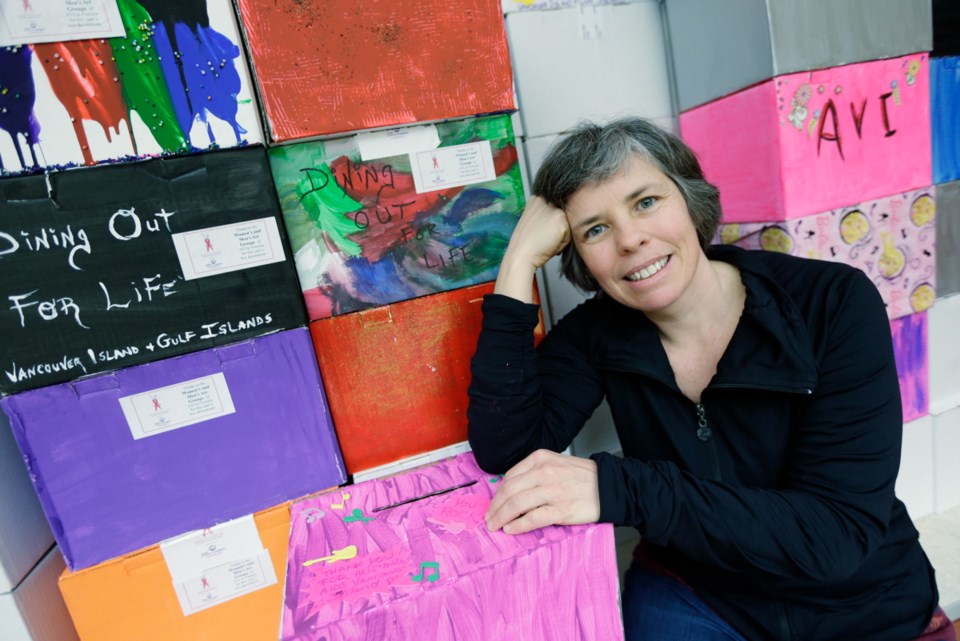Thousands of people in B.C. — including as many as 200 on Vancouver Island — are infected with HIV and don’t know it.
The B.C. Ministry of Health is concerned that about 3,500 people unaware they have the virus might infect others and delay their own treatment. There are already 11,700 known cases of HIV in B.C. as of 2011, including 888 on the Island as of 2012.
People might be unaware they have HIV because they don’t engage in any of the behaviours at highest risk for contact with the virus, such as unprotected sex between men or intravenous-drug use, said Dr. Julio Montaner, director of the B.C. Centre for Excellence in HIV/AIDS.
So, what’s the best way to reach these people?
Routine HIV blood tests should be included for all sexually active people when other medical tests are undertaken, Montaner said.
“You should have an HIV test once a year, no matter what,” he said.
HIV screening should be offered to “everybody who has been sexually active in the last five decades, which typically involves pretty much [everyone] from teenagers to old people,” he said.
In a recent pilot project, 20,000 B.C. residents with no risk factors for HIV were asked to take the blood test when admitted to Vancouver hospitals or using emergency services. More than 90 per cent agreed to the tests and five per 1,000 turned out to be HIV-positive.
“That was a good signal to us as health-care providers that people are totally willing to participate in HIV prevention,” said Dr. Dee Hoyano, VIHA’s medical officer of health.
Currently, Canada routinely screens for HIV only in the donated blood supply and pregnant women, Montaner noted in an editorial in the Canadian Medical Association Journal. Yet patients who are diagnosed with HIV late in their infection — when they have had ample time to spread the disease — have usually used the health-care system several times, when they could have been offered the HIV test.
Routine blood testing has the support of Audrey Shaw, manager of communicable diseases at the Vancouver Island Health Authority. Until now, only people in high-risk groups have been encouraged to be tested, but routine HIV testing holds a lot of promise for treatment and prevention, she said.
“It’s one of the things that is under serious consideration by our strategic committee.”
She also recommends family doctors incorporate HIV tests into other blood work or annual routines. With $4.6 million in new funding coming from the Ministry of Health over the next three years, VIHA can devote some resources to increasing access to HIV blood tests, Shaw said.
VIHA is also working with the B.C. Centre for Disease Control to develop education and training about HIV testing for pharmacists, dentists, dental assistants and harm-reduction workers, Shaw said.
Last year, there were 7,629 HIV tests performed on Vancouver Island, VIHA reported.
People can have anonymous blood tests for HIV at the sexually transmitted infections clinic at 1947 Cook St., with the results available within a few minutes, said clinic nurse Wendy Stark.
Unfortunately, access to easy testing and quick results can depend on where a person lives.
“We do really well in most of VIHA to provide HIV testing on a no-wait basis but in some of the most rural, remote areas, people may have to wait if the local doctors [and] public health nurses are busy carrying out other responsibilities,” Shaw said.
Early testing, diagnosis and treatment make a difference, she added.
“It really counts, how early you are diagnosed and starting the treatment. We not only want to identify more HIV cases, we want to identify them earlier in their disease trajectory.”
For those who test positive, health professionals no longer have to worry about delivering a probable death sentence.
Once diagnosed, “very few people” with HIV will go on to develop AIDS because “the treatments are very good,” said Katrina Jensen, executive director of AIDS Vancouver Island.
The HAART anti-retroviral treatment reduces not only viral load in the bloodstream and sexual fluids but combats AIDS-defining illnesses such as tumours called Kaposi’s sarcoma or CMV retinitis, which can cause blindness. HAART drugs are provided without charge to medically eligible B.C. residents.
The treatment extends and improves quality of life, Montaner said. A 20-year-old diagnosed with HIV today and given HAART can expect to live to age 73.



